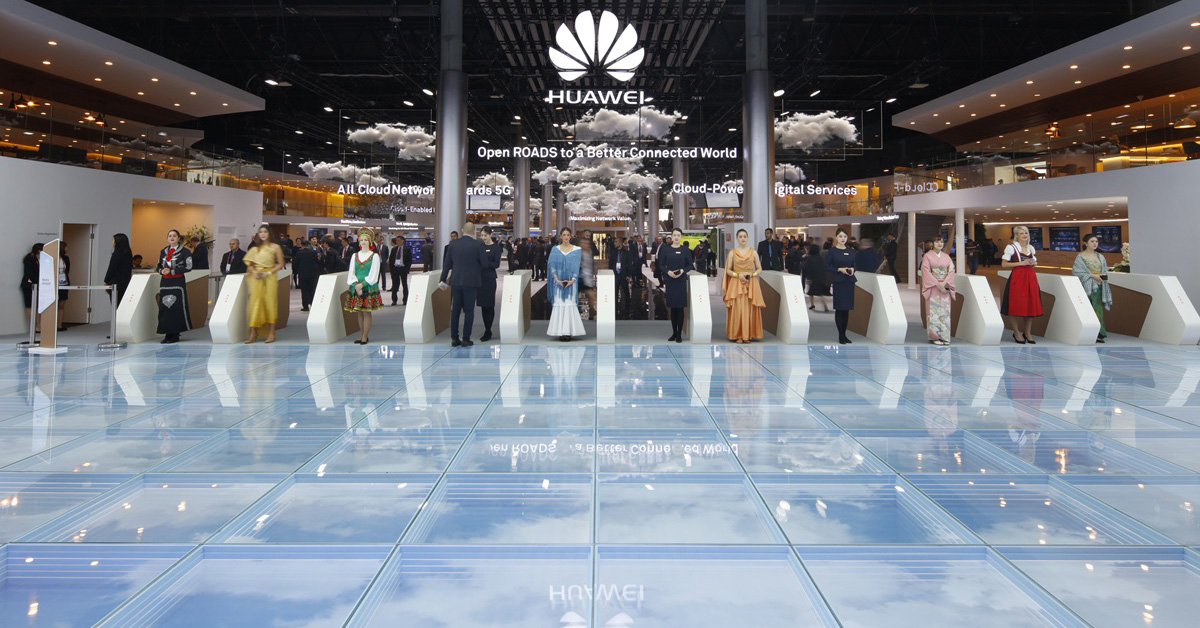With just three words, an article in today’s Sydney Morning Herald seeks to almost completely misrepresent what’s actually happening in Australia’s mobile landscape.
When Vodafone Australia’s CEO Iñaki Berroeta said “No More Huawei”, he wasn’t talking about Australian carriers moving to deliberately remove carrier equipment from Chinese company Huawei. Far from it. Rather, he was making a fairly self-evident statement which must’ve been dollar signs to a journalist’s eyes.
After Huawei was banned from participating in Australia’s 5G network build, today’s article would have you believe that carriers like Vodafone would be conducting a full purge of their networks to remove all Huawei equipment. But no, Mr Berroeta said quite the opposite. Let’s look at a couple of the choice quotes which give this story much more context:
“I’m comfortable with keeping [Huawei] on 4G because we have checked with authorities and that is perfectly ok, so I don’t think we’ll have an issue around keeping that,” Mr Berroeta said.
“What we know for a fact is that on 5G we will be operating with a different vendor.”
That much is known. The crux of the article comes just below, where we see the following tidbit:
“There will be a year, sooner rather than later, where 80 per cent of our traffic will be 5G. There will be a time when it will be zero [on 4G]. When it’s zero there is no more Huawei,” he said.
And there it is. Just as reporting the sky is sometimes blue, once the transition from 4G to 5G is complete, the logical conclusion follows that there will be no Huawei carrier hardware in use in Australia. An unremarkable statement, you might think, but three words which are easily seized upon to make headlines.
Huawei Australia are only too well aware of their situation in Australia at the moment, but are they worried? If they are, they’re definitely not letting it show. Huawei’s head of corporate affairs Jeremy Mitchell was quite clear in his belief that Huawei’s lot would continue to improve, as the company’s carrier business is just one arm. John Lord, Huawei Australia’s independent chairman, reiterated this view at a recent private function, stating clearly that Huawei’s growing consumer sales were a sign the company wasn’t going anywhere.
For the short term, this is almost guaranteed. There’s certainly precedent for successful smartphone makers tanking and virtually disappearing, but Huawei doesn’t appear to be on that trajectory – at least, not yet. Shipping more units than Apple, Huawei’s already the number 2 smartphone vendor worldwide, and it’s clear that Huawei has one thing in its sights: further growth, uninhibited by 5G bans in a handful of countries.
Whether you’re a fan of Huawei’s products or not, one thing is almost certain. I think it’s going to be some time before there’s “No More Huawei”.





So this is the full SMH headline:
‘No more Huawei’: Vodafone CEO expects telcos to dump Chinese suppliers
But the telcos will dump Huawei from their new network rollouts. Then there will be no more Huawei in Australian mobile networks. If fact, they won’t be buying new Huawei network equipment, effective immediately.
I don’t see why it’s misleading. It doesn’t matter if Vodafone is happy with Huawei. The fact remains thar Telcos will dump Huawei, at the behest of the Australian government.
The sad reality is that this was all decided by 5 eyes nations in Canada last July. The US love it as it provides them with ammunition for their unwinnable, everyone loses trade war. The security rationale is techically correct, china could compell Huawei to commit cyber espionage, but the damage from doing so woudl be so huge that no rational government would suggest it.
The reality is that because of trumps ego we are all about to pay more and get less when it comes to mobile data and broadband
I think that is iincorrect ncorrect statement my friend , espionage is usually not carried out in broad daylight , it is done on the quiet usually . . And i suspect it’s usually done in such a way as much as possible too have plausible deniability.. And as we have seen many times over the years , Security services from different countries in all manner of activities have been caught with their hands in cookie jar red handed (including our own) , These dudes think about risk and concequence different to the average person . Look at the dudes… Read more »
Because China cares what the rest of the world thinks?
Please see South China Sea.
Quote: “The sad reality is that this was all decided by 5 eyes nations in Canada last July.”
That’s true. But guess where you learned that information from… The Sydney Morning Herald. December 13. Headline: How the ‘Five Eyes’ cooked up the campaign to kill Huawei. The Canadian link is exposed for the first time.
It was real journalism that researched and brought you that story. Information that you would not have known otherwise. I think some folk around here should remember that before putting the boot into publications that still do real journalism.
I literally just read that article. Typical headline grabbers that mean nothing.
It’s sad that Huawei are banned considering their technology is years ahead of the rest and cheaper to implement so I’ve read!
It seems like 5G implementation will be like the NBN, using outdated technology!
Has there been any actual proof that Huawei are spying for their government? All governments spy on each other.
None that has been made public. From what I understand the issue is that because Huawei is a Chinese company the Chinese government *could* co-opt them and compel them to provide information and “spy” on other countries. If china did that then Huawei would be dead (who would then trust them) so I don’t see that happening, ever.
I’ve also not seen anything made public, and I don’t believe there’s anything massive and systematic happening, but I have recently read a book ‘China’s great wall of debt’ which outlined the deep ways companies *must* cooperate with the government in China